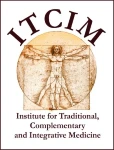
Dr Nikhil Dongarkar, MD Ayu - Deutschland
Abstract of the presentation
Effectiveness of Ayurveda Panchakarma Therapy in the Management of Migraine
Co-authors: Sanjay També (MBA) Brigitte Henirich (HP)
Branch: Ayurveda (Research)
Migraine is a chronic neurovascular disorder marked by recurrent, pulsatile headaches, typically affecting one side of the head and often accompanied by photophobia, phonophobia, nausea, and vomiting. In Ayurveda, migraine closely correlates with the condition Ardhavabhedaka, described in classical texts as severe one-sided head pain involving Vata and Pitta doshas. Modern pharmacological treatments focus on symptomatic relief but may be associated with side effects and do not always prevent recurrence. Ayurveda, through its Panchakarma therapies, offers a holistic and root-cause-based approach. This study aims to evaluate the clinical efficacy of Ayurveda Panchakarma therapy in managing migraine.
Primary Objective:
- To evaluate the efficacy of Panchakarma therapy in reducing the intensity and frequency of migraine attacks.
Secondary Objectives:
- To assess improvement in quality of life post-intervention.
- To evaluate the reduction in the use of allopathic pain medications.
- To assess Ayurvedic parameters such as dosha balance and prakriti alignment.
Expected Outcomes:
- Significant reduction in the frequency, severity, and duration of migraine episodes.
- Decrease in dependency on allopathic medications.
- Improvement in overall well-being and quality of life.
- Achievement of dosha balance through Panchakarma therapies
Please note that some of the texts also include machine-generated translations.





